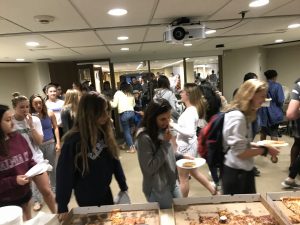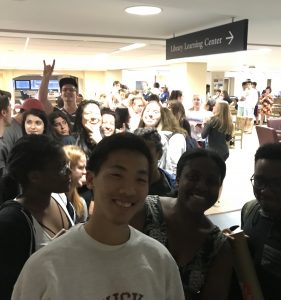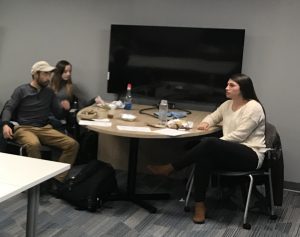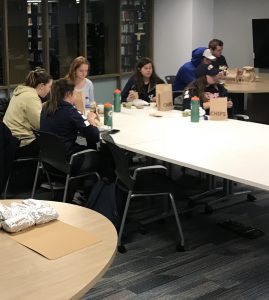Every semester, students expect it. And,  every semester, we deliver it! I’m not referring to research help, of which we provide A LOT. Rather, I’m referring to the Pizza Party Study Break that we host at the end of every semester. Outside of teaching, it’s one of my favorite parts of my job, and I don’t even eat pizza.
every semester, we deliver it! I’m not referring to research help, of which we provide A LOT. Rather, I’m referring to the Pizza Party Study Break that we host at the end of every semester. Outside of teaching, it’s one of my favorite parts of my job, and I don’t even eat pizza.

On the evening of May 7th, nearly one hundred students were lined up outside of the Phelan Room fifteen minutes before the pizza party began. Within half an hour, only a few slices of pizza remained. Over two hundred students were carbed-up, and ready to return to their studies. Thanks to those who joined us. We’ll definitely host another study break in December!


